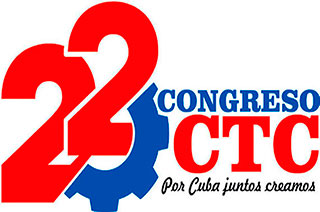
Using the pretext implies a design different from the conventional way in which they are conceived today, limited, it seems, to exist only on the date of its completion, a concept as narrow as brief that, with few exceptions, is doomed to go unnoticed.
Perhaps for this reason, when around 70 of the schedule of 168 municipal conferences have already taken place, the expected atmosphere of this local congress is not yet perceived, except in the press media, Facebook accounts or on X social media.
But as my parents used to say, since a single hand does not make noise, the organic process requires the creativity of its players to turn it into the event it is par excellence.
The congress of the municipality needs to appear in the natural physical space of the factory, the field, the school, the hospital, the cafeteria, in the MSMEsAn acronym for micro, small and medium-sized enterprises (In Spanish: mipymes) in question or before a self-employed worker, so that the current stage is continuity of what happened at the base, and not its rupture.
And it is true that the great event is taking place in a financially complex context, perhaps taking out of the way any initiative of added expenses to those incurred in the transfer of delegates, accommodation, food or printed materials.
However, this same adverse scenario should be used to reflect on what conference the municipality deserves and what is offered to it, because after all, the Congress does not belong only to the Central de Trabajadores de Cuba (CTC)The CTC (Workers' Central Union of Cuba) was founded on January 28, 1939 by Lázaro Peña under the name Confederación de Trabajadores de Cuba (Confederation of Cuban Workers) and the unions, the Congress belongs by essence to the workers.
It is precisely the working population that should be considered when devising a predecessor movement to the conferences, which would involve, for example, delegates touring the workplace to get a close-up look at the reality of the centers that define the economic base, exchange ideas, find out what concerns them, and, as far as possible, come to the Conference with answers or solutions to their questions or doubts.
It would do these meetings a lot of good if the municipal committees of the Central de Trabajadores de Cuba (CTC)The CTC (Workers' Central Union of Cuba) was founded on January 28, 1939 by Lázaro Peña under the name Confederación de Trabajadores de Cuba (Confederation of Cuban Workers), with all the authority they have, would invite a ministry, Osde or national company when the proposals depend on those bodies, so that the debate would be as profound as it would be profitable.
When many conferences are still missing from the schedule, the solution could be in the organizational dynamics as a prelude to these prominent spaces, so that they leave a feeling of legitimate utilitarian value and people really feel the transforming spirit of the 22nd Congress, suggested the secretary general of the Central de Trabajadores de Cuba (CTC)The CTC (Workers' Central Union of Cuba) was founded on January 28, 1939 by Lázaro Peña under the name Confederación de Trabajadores de Cuba (Confederation of Cuban Workers), Ulises Guilarte De Nacimiento.
Ulises himself advocates that this moment should be a real exercise in mobilizing productive reserves and the provision of services, and above all, that it should not be just another meeting, and on this point I also agree with him, because it is not only a question of resorting to innovative thinking before the conferences, but especially during their development.
Nothing can be left to improvisation. Everything must be taken care of, from the preparation of an attractive report in its form and content, eloquent of the union influence on what remains to be changed or on the achievements of the evaluated period, to going out of the script and honoring the exceptional balances of the municipality, the collective that asked for land and produces more food, the innovator, the blood donor, the one that contributes the most money to the homeland.
In terms of bringing the conferences closer to these times, to the life of the territories, the Central de Trabajadores de Cuba (CTC)The CTC (Workers' Central Union of Cuba) was founded on January 28, 1939 by Lázaro Peña under the name Confederación de Trabajadores de Cuba (Confederation of Cuban Workers) and its trade union movement need the full support of the political and governmental authorities, to whom it is more convenient that the organization mobilizes, and mobilizes affiliates and workers well, to make dreams, goals and objectives possible.
No initiative will be feasible if we do not know how to lead the processes in each of the structures, insisted the second secretary of the Central de Trabajadores de Cuba (CTC)The CTC (Workers' Central Union of Cuba) was founded on January 28, 1939 by Lázaro Peña under the name Confederación de Trabajadores de Cuba (Confederation of Cuban Workers), Isdalis Rodriguez, when she presided in the province of Matanzas the seminars of the 22nd Congress.
At that time, she emphasized the idea of self-preparation, of complying with the methodological indications and of fostering, primarily, an environment similar to the magnitude of the process, convinced that success lies in the way in which quality is conceived, cared for and controlled from now on, until the final sessions of the great event.